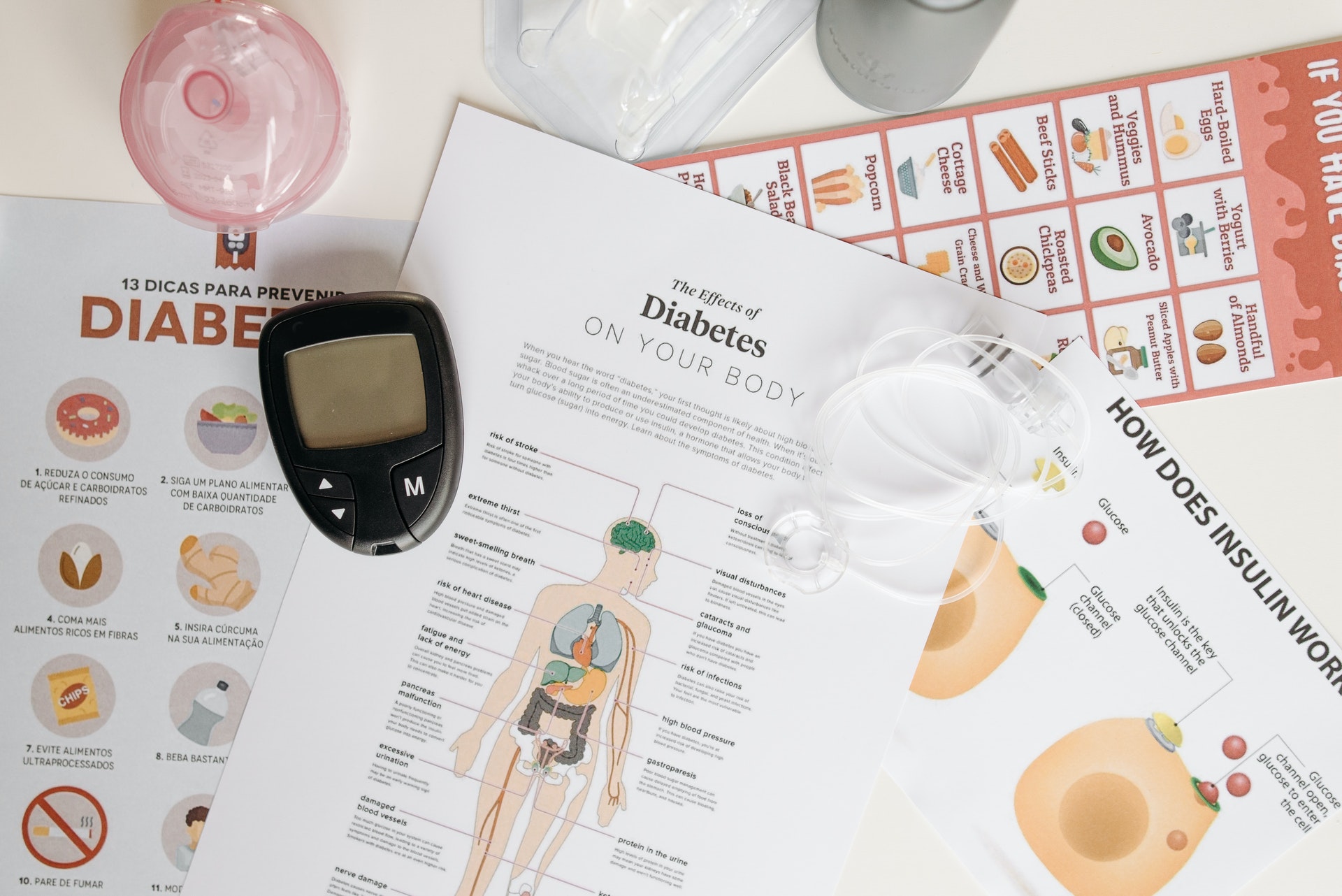A recent study has concluded that a strong connection exists between Diabetes and tooth decay. Diabetes is a condition that affects millions of people around the world. But this has worrying consequences for oral health, with the research showing that both enamel and dentin are badly impacted when a person has diabetes. These findings suggest that people with diabetes should take extra care with their teeth.
A connection between Diabetes and tooth decay has long been proposed. But proving this has been difficult for researchers. However, this may now have changed.
Research from Rutgers University suggests that those with diabetes will typically see reductions in the strength and durability of enamel and dentin – resulting in enhanced tooth decay [1].
With so many people being diabetic, this study shows that many people around the world need to be extra cautious about their teeth.
About Diabetes
The NHS define Diabetes as “a lifelong condition that causes a person’s blood sugar to become too high” [2]. Diabetes does have the potential to be life-threatening.
There are two types of Diabetes. Type 1 Diabetes involves the body’s immune system attacking and destroying the cells that produce Insulin. Meanwhile, Type 2 Diabetes takes place when the body does not produce enough insulin [2]. Type 2 Diabetes is far more common.
Diabetes is one of the most common health conditions in the world. Approximately 37.3million Americans have Diabetes – representing around 1 in 10 of the general population [3]. Approximately 20% of people with Diabetes are unaware they have it [3].
A connection between oral health problems and Diabetes has been established for a while, though there has been debate on the exact causes of this. Research suggests that people with Diabetes are likelier to have oral infections, tooth loss and higher rates of dental caries when compared to the general public [4].
The Research
The research was carried out by Rutgers University and then published in the Archives of Oral Biology journal [1]. The research took place over multiple years, with the results of this study now being collated.
To carry out the research, the researchers induced 35 mice with Type 1 Diabetes [1]. The idea was that the researchers would look to review the impact that Diabetes had on the teeth of these mice. They specifically looked to see the impact on enamel and dentin.
The researchers then used a device called the Vickers Microhardness tester to compare the teeth of these 35 mice with 35 healthy mice, which acted as controls [1]. They did this at four week intervals, finishing after 28 weeks.
For the first couple of months, the teeth of the two groups of rodents were very similar. It was only after 12 weeks that the researchers noticed a difference [1]. The researchers noticed that enamel had grown significantly softer in the diabetic mice compared to the healthy mice.
The gap continued to widen as the weeks went by. The researchers started to notice around 16 weeks that the dentin of the mice was also affected [1]. By 28 weeks, the researchers were able to form their conclusions.
They concluded that enamel had been “significantly” affected in the diabetic mice [1]. While dentin wasn’t impacted as much as enamel, it was also damaged when compared with the healthy mice [1]. Therefore, Diabetes clearly has a negative impact on oral health. Perhaps even more concerning is the impact that was made in just 28 weeks.
What this means
The findings of this study are important for wider healthcare. The link between tooth decay and Diabetes is clear. Therefore, anyone with Diabetes, or are at heightened risk of the condition, should be extra vigilant with their oral health.
To put the findings into context – enamel is the outer covering of the tooth. It is a very hard substance. But as enamel wears down, it exposes dentin, which is a yellowish colour. Dentin makes up the majority of the tooth, and is worn down easier than enamel.
Mohammad Ali Saghiri is an Assistant Professor in Restorative Dentistry at the Rutgers University School of Dental Medicine. Saghiri commented on the findings [5]. He said that “we’ve long seen elevated rates of cavity formation and tooth loss in patients with diabetes, and we’ve long known that treatments such as fillings do not last as long in such patients, but we did not know exactly why” [5].
Saghiri continued by saying that the subject was “a particular focus of mine because the population of people with diabetes continues to grow rapidly” [5]. Finally, he concluded by saying that “there is a great need for treatments that will allow patients to keep their teeth healthy” [5].
These findings show the importance of enhanced dental care for those with Diabetes. It may also prompt discussions that review treatment options for this vulnerable group.
Thinking points…
1) We mentioned earlier in this article about how many people aren’t aware that they have diabetes. This could be any of us. Look out for symptoms like feeling very thirsty, urinating more frequently, feeling very tired or blurred vision. If you do exhibit any of those symptoms, consider taking extra care with your oral health and seeing your Doctor. Therefore, this should include attending regular dental check-ups, and having excellent oral hygiene.
2) This study shows the link between Diabetes and tooth decay. If you have Diabetes, try and make lifestyle changes like regular exercise and healthy eating. However, as Diabetes is linked to tooth decay, be extra vigilant towards your oral health. This includes attending your dental clinic at least twice a year for check-ups. Your dentist will be able to assist with your oral health and make recommendations – consider booking now!
3) If you know someone that has Diabetes – whether it be a friend or family – you could help them by sharing this article with them. It would alert them to the importance of looking after their oral health.
What we offer at Taradale Dental
Taradale Dental is a Calgary Dental Clinic offers many services, including regular check-ups, cavity fillings and root canals.
We are also pleased to offer some cosmetic services. Here at our Calgary dental clinic, we offer treatments like tooth whitening, Invisalign™ and dental implants.
It is important for oral problems to be addressed early. Any dental problems will be identified at check-ups. This helps to prevent the problem getting worse. If and when further treatment is needed after a check-up, our patients receive a clear treatment plan that is suited to their needs.
The best way of avoiding extra treatment is to have strong oral hygiene. This includes brushing our teeth at least twice a day, flossing regularly, and getting a dental check-up at least twice a year. Avoiding sugary foods and drink and not smoking also helps.
Our Calgary-based dental clinic Taradale Dental also follows the Alberta Dental Fee Guide. This means our prices are competitive, transparent and affordable.
We would love you to visit us here at Taradale Dental soon! You can see more about us by visiting our website https://taradaledental.ca.
References
[1] Saghiri, M. A., Sheibani, N., Kawai, T., Nath, D., Dadvand, S., Amini, S. B., Vakhnovetsky, J., & Morgano, S. M. (2022). Diabetes negatively affects tooth enamel and dentine microhardness: An in-vivo study. Archives of Oral Biology. 139 (105434). DOI: https://doi.org/10.1016/j.archoralbio.2022.105434.
[2] NHS. (2019). Diabetes. Available: https://www.nhs.uk/conditions/diabetes/. Last accessed: 5th June 2022.
[3] Centers for Disease Control and Prevention. (2022). The Facts, Stats, and Impacts of Diabetes. Available: https://www.cdc.gov/diabetes/library/spotlights/diabetes-facts-stats.html. Last accessed: 5th June 2022.
[4] Collin, H-L., Uusitupa, M., Niskanen, L., Koivisto, A-M., Markkanen, H., & Meurman, J. H. (1998). Caries in patients with non-insulin-dependent diabetes mellitus. Oral Surgery, Oral Medicine, Oral Pathology, Oral Radiology, and Endodontology. 85 (6): p680-685. DOI: https://doi.org/10.1016/S1079-2104(98)90035-X.
[5] Rutgers University. (2022). Diabetes may weaken teeth and promote tooth decay. Available: https://medicalxpress.com/news/2022-05-diabetes-weaken-teeth-tooth.html. Last accessed: 5th June 2022.




[…] A Recent Study Has Concluded That a Strong Connection Exists Between Diabetes and Tooth Decay. Click the Link To Know More […]